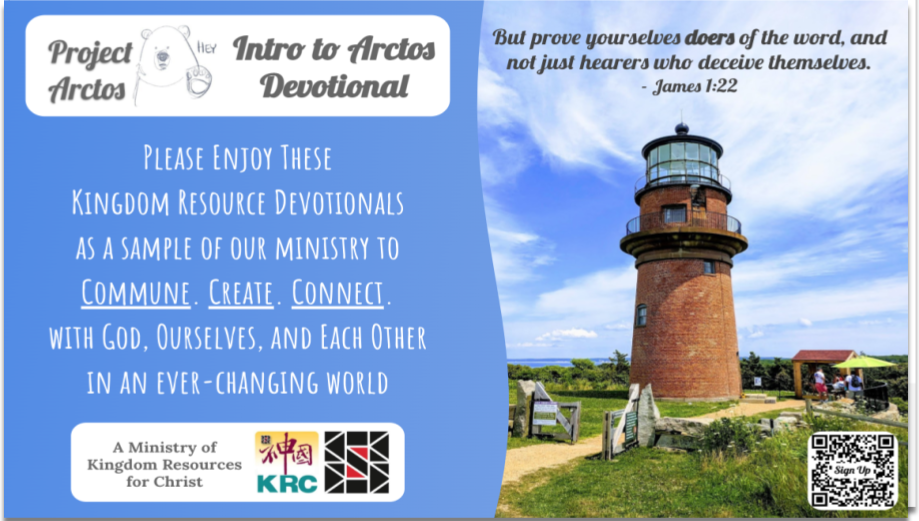What is a Deep Friendship?
By Project Arctos
Edward Welch describes a deep relationship as one in which someone is affected by another person. Does this sound like some of your friendships?
Depth of friendship often occurs when we share deeper things in our lives which come through actions such as confession (and not always in a “sin” sort of sharing, though that may definitely be part of it), listening until our hearts are moved, and walking in faith in our friendships (i.e. asking questions, sharing things, or doing things that might not be comfortable at the moment). In the same way that we may deepen our relationship with God, so we may find ways to deepen our friendships with others.
What are ways you might deepen your friendship with God and others?
Below are some tools we have found helpful in building deeper, stronger relationships. These may be applied not only to our relationships with others but also to our relationship with God.
Schedule in Connecting
It can be easy to simply get busy and lose connection with friends. Unless we carve out time for them in our schedules, distance is bound to happen.
Try scheduling in a form of communicating and connecting that works for you both:
In person get-togethers are best (the more informal the better).
Consistent calling, emailing, or messaging can help with brief updates/sharing.
Have a plan for when you miss or can’t keep a scheduled time, so the habit doesn’t fall off entirely (and if your friend misses a time or two, show them grace and offer to adjust the timing or format).
Practice Active Listening
We can be quick to try to fix things friends are sharing about before fully hearing them out sometimes. It’s actually hard work to be a good listener for our friends. It’s hard to just listen and not offer something of our own thoughts, but in some situations, that’s what’s needed.
Try Active Listening, which is doing your best to listen without interrupting to add your own experience or offer a quick fix. Instead, focus on validating their emotions and asking good follow-up questions until you really feel like they’ve fully conveyed themselves and you’ve seen things from their perspective. Ask until you feel what they feel or until you deeply feel affected by what they’re sharing.
Consider attending a free Project Arctos Active Listening online workshop. We learn how to use more reflective statements such as, "It sounds like you're feeling..." or "Tell me more about..." rather than responding too quickly and missing the need they’re really trying to share.
Try to ask “what” and “how” questions more than “why” questions at the start.
Don’t ask questions you know the answers to.
Ask clarifying questions when things don’t make sense to you or are confusing to you, even if it seems obvious.
Ask questions to learn and understand. Ask if they have more to share after they’ve finished sharing.
Practice Vulnerability
Vulnerability isn’t often modeled or prized in most cultures, even in Christian circles.
Try to be intentional to share your thoughts, struggles, or feelings with friends when appropriate. It’s not always easy, and it may take your friend a moment or time or two to get used to it, but if we model it well, it will free up others to do likewise and eventually become trusted sharing resources in each others’ lives.
Challenge:
Start with your safest relationship, and be vulnerable with God in your prayer time about something you’ve been struggling with. Then prayerfully identify a friend or mentor to try to share with. (If it’s not feeling safe to share, feel free to try again another time, or with someone else.)
Practice Presence in Trials
It can feel awkward or uncomfortable when a friend is going through something we don’t understand or know much about, but oftentimes our friends just need us to be present, not to fix their problems.
Next time you find yourself backing away from a friend’s situation, try to hang in there and just be available for them. You may also find it helpful to seek out expertise in the particular area they’re struggling with so you might understand them better.
Read George’s article for more on what might be helpful for your friends in times of trial and hardship.
Follow Up
Know someone is going through a hard time?
Find concrete ways to support them. If you don’t know how to support them, ask more questions about what they’re going through to understand how they’re doing and ask them how they might feel more supported. h w t Set a calendar reminder (potentially recurring) for major events (such as loss of a loved one) and reach out to your friends to let them know you’re thinking of them and praying for them.
pray for them
join them
Speak the Truth in Love
This is so hard to do well, both in timing and delivery, but when done right, it can show that your friendship is growing deeper.
Model this by asking friends to speak the truth in love to you. Ask God for humility and grace to listen and confirm being wrong if you actually are wrong. Are there moments in life where you might have offended someone or done something wrong? Pray and then go ask them and share with them.
Speak gently, ask questions to clear up assumptions. Listen and work to have a two-way con versation. Remember, it is God’s kindness that leads us to repentance. Model the Father’s kind ness and patience with your friends.
Pray to Be a Good Friend
Pray and ask God to teach you and form you to be a good friend. Our heavenly Father is a good Father and gives good gifts to His children.
Seek to be attentive to the Holy Spirit and journal to reflect on ways you’ve practiced hearing God’s voice and the fruit of what you did or said. Share with others and seek to see Christ revealed in one another through sharing, confession, and general conversation.
*For a free PDF version of this resource, and more free resources, please check out projectarctos.com/shop
The Project Arctos team is small and mighty, just some everyday Christians doing what we can with what God has given us to help us all Commune, Create, and Connect as vibrant citizens of His Kingdom.
If you’re into doing the same, consider joining us as a writer, graphic artist, podcaster, narrator, print or web editor, workshop leader, song writer, social media specialist, or more.
For more independent content from Christians just like you, please checkout our ever-growing archive of articles, devotions, and resources:
















































